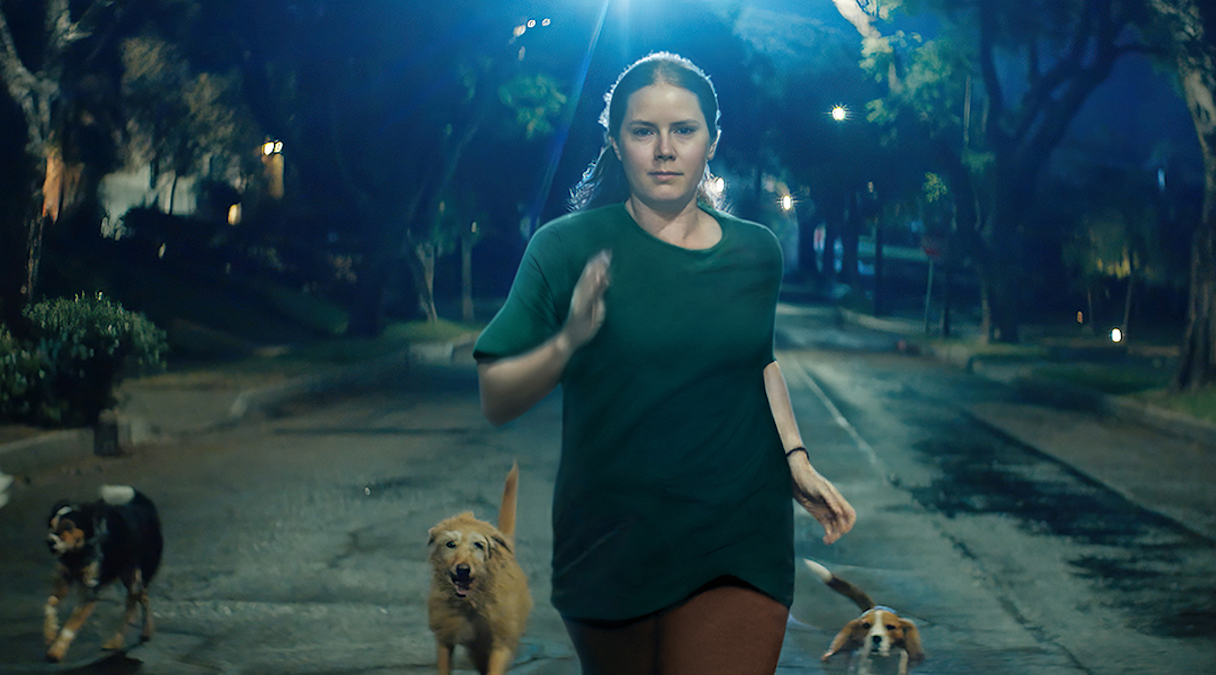Amy Adams is Mother. Literally: A ‘Nightbitch’ review
4/5 animorphs

Writer and director Marielle Heller is back at TIFF with another absolute banger, Nightbitch. No stranger to the festival, Heller has previously brought two feature films to TIFF: Can You Ever Forgive Me? starring Melissa McCarthy, and A Beautiful Day in the Neighborhood, starring Tom Hanks.
Here we are again with her third premiere in Toronto, and I think this is the big one. Nightbitch is a phenomenal, nuanced exploration of motherhood based on Rachel Yoder’s novel. Amy Adams pounced on the film rights before Yoder’s book even hit the shelves, and I am so glad she did.
This film is a masterclass in balancing theme, tone, and reality. It is eccentrically whimsical as it is dark, brooding, and hopeful. Nightbitch beautifully encapsulates the chaotic and dysphoric metamorphosis of parenthood.
Amy Adams is Mother, a recent stay-at-home mom with a kid under 2 and a Husband (Scoot McNairy) who spends more time at work and on business trips than he does at home. Once a prestigious artist and now a toddler’s punching bag, Mother is struggling. As she stumbles, crawls, and cries through her day-to-day life, her body begins to change, her senses enhance, and her personality shifts. Boom, she’s … a … dog …? lol
Nightbitch explores abandonment, loss of self, parenthood, and partnership. We watch loneliness catch up to Adams. We see her lose passion. We watch a marriage break down from miscommunication in a foggy state of mind from chasing an infant around all day. Space creates boundaries. Time gives way to art. Acceptance draws friendship. In one film we explore so much of humanity’s greatest flaws and struggles and just as swiftly see characters we love overcome.
Nightbitch is exceedingly socially observant. The everyday routine of a stay-at-home mom relies on public programming to fill the time, to relieve the pressure of planning activities for every day. This film takes us to the public library for story time, to baby yoga, to family hikes, and to the park. The parenting style feels so familiar and grounded, adding to the character development of Mother and Husband; it roots this fantastical story in reality.
This film was created by mothers who understood the assignment.
As much as this is about Mother, it is also about the father, Husband, who gives an intriguing perspective and portrayal of fatherhood. At first I dismissed him as just another weaponized incompetent man. However, as Mother shares more about her experience and her needs, Husband has more nuanced emotion and inner dialogue that contributes significantly to the overall tones of the film.
Nightbitch is incredibly well structured. Despite the unusual content, I never felt lost or confused. It’s easy to sweep yourself into the magical realism of this outlandish genre experiment.
It was extremely fun to watch the formation of Mother’s pack. Simultaneously, we’re meeting a core group of dogs that follow Mother around and 3 other mothers at Book Babies in the public library. It is not explicitly clear that these dogs are her friends Miriam (Mary Holland), Jen (Zoe Cheo), and Naya (Ella Thomas). However, to Mother, the similarities and comforting resemblance lends her the courage and motivation to pursue kinship with these women. Mother finding that relationship outside her little bubble as a mom and kid creates a gateway for support, individualism and inspiration.
This connection also plays into the development of Mother’s self confidence and an end to her self deprication. It’s so relatable this feeling of doubt until you meet someone and you suddenly get the chance to see how cool you are from the perspective of someone else.
Nightbitch poses a lot of questions about parenthood and how it’s treated, how it’s become incredibly lonely. It used to be a child had a village, and now they barely get a neighborhood.
This film explores the body changes so many dismiss after people have a baby. It is somehow socially taboo to tell people with ovaries how much creating a child and punching it out of you affects your physicality for the rest of your life. Sadly, it’s just not talked about or acknowledged, which isn’t fair to prospective parents.
Honestly, I am so pleased with this film. It hit a million different themes and succeeded in the representation of all of them.
Have a tip we should know? tips@themarysue.com